Write Us
We are just a call away
[ LET’S TALK AI ]
X
Discover AI-
Powered Solutions
Get ready to explore cutting-edge AI technologies that can transform your workflow!

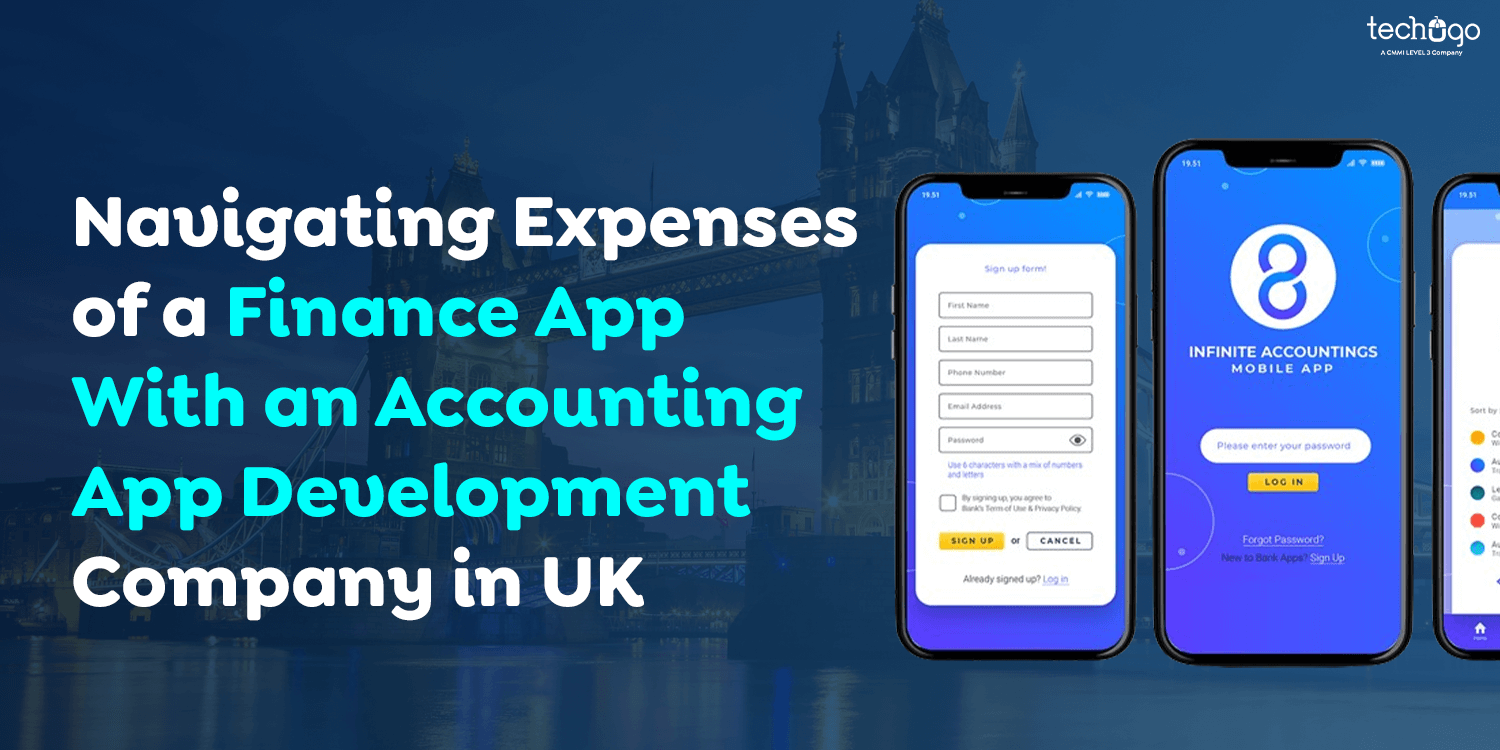
Do you know that now you can handle your business finances on the go, from anywhere in the world? No more twisting and turning to find the receipts or late-night financial calculations. This is a reality for businesses embracing mobile accounting apps. The trend is booming with over 70% of UK businesses already using mobile accounting solutions. This surge in popularity isn’t surprising. Innumerable benefits can be gained through accounting apps that work toward facilitating financial processes, improving efficiency, and giving businesses the power to make data-driven decisions.
Traditional accounting methods are usually laborious. On the other hand, mobile apps help in easy expense tracking, automate invoicing, and offer real-time financial reports. This translates to huge savings, better cash flow management, and a stronger financial core. But with this decision to develop your own accounting app comes the question of cost. Developing a mobile app, especially for financial data handling requires the accumulation of many factors. Here’s where this guide from a mobile app development company in UK comes in.
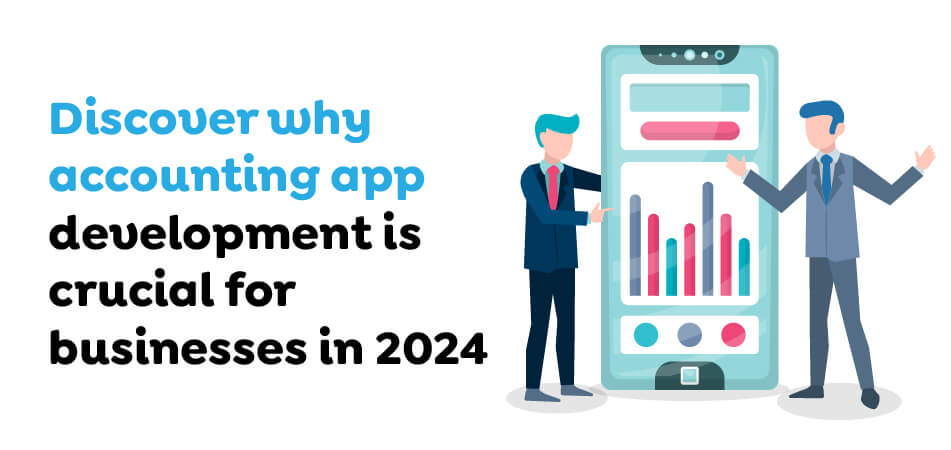
Let’s find the right and smooth track by getting into key factors that significantly impact the overall cost of your accounting app. By the end, you will get a cost structure to develop an accounting app in the UK, along with crucial factors that influence the final figure. This will arm you with the power to create a realistic budget and make well-informed decisions that go well with your business goals.
So, get ready to take notes about accounting app development costs in 2024!
In today’s fast-moving business environment, enterprises are oriented toward creating easy operations, boosting efficiency, and achieving a winning edge. One powerful tool that can make all the difference in your financial management is a custom-built mobile accounting app. Here’s why investing in accounting app development can stand ideal for your business:
A world where your employees can track expenses, raise invoices, and reconcile bank statements while on the move sounds very interesting right? A mobile accounting app eliminates manual data entry and cumbersome paper trails. Companies using mobile accounting solutions reported spending 40% less time performing manual bookkeeping tasks, translating to huge cost savings that let your team do what matters most in the business world.
Say goodbye to the busy ends of the month when you need to wait for that report on how your financials are performing. Mobile accounting puts real-time financial data in your palms for informed decision-making. Now, track possible cash flow problems from the early stages and optimise expenses to unlock growth opportunities. For those businesses using mobile accounting apps, it increased the ability to make data-driven financial decisions by up to 25%.
The core of any business is maintaining good cash flow. Mobile accounting apps keep your transactions organised and produce automated reports that provide real-time insight into the state of your finances. This increased transparency allows for more effective cash flow management, such as planning to ensure you can make essential payments.
Mobile accounting apps can simplify your invoicing process by allowing you to electronically send invoices to your customers for online payments much quicker. It can create an easy payment option for your clients. Online payment gateways improve client satisfaction by 15% and efficiently cut down late payments.
The mobile accounting app allows managing finances everywhere, every second. This kind of flexibility comes in handy, particularly for businesses with remote teams or businesses with travelling employees. As your business grows, your accounting app can grow wide and accommodate an increasing number of users and evolving financial needs.
This would mean that when you partner with a leading accounting app development company in UK, you can bank on the advantages of a developed mobile solution. A solution tailored by professionals, guaranteeing customised solutions to your business’s unique needs.
Also Read – Guide to Start Cloud Kitchens in UK: Streamlined Operations, Lower Costs, and Digital Dining
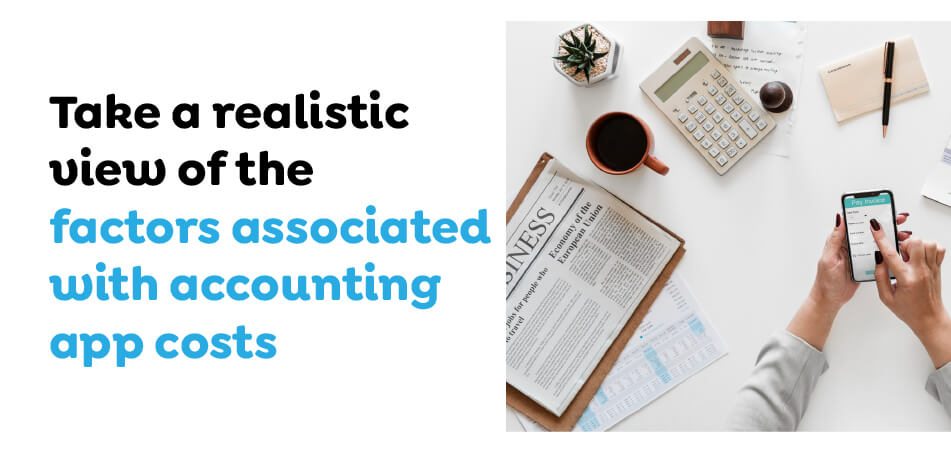
Developing a mobile accounting app in the UK might be an empowering action for your business, yet dealing with the associated costs might be bewildering. Let us dive into the major factors that drive the cost of your app. The first major determinant of cost would be the complexity of the app. While the minimum could be £50,000, depending on how complex and the height of the features, the ultimate cost will be confirmed.
Beyond the general complexity level, each specific feature of your accounting software development significantly impacts the development cost. Here are some cost implications:
The decision to develop for iOS, Android, or both platforms significantly impacts cost.
A user-friendly and intuitive UI/UX is paramount for an accounting app. Struggling to navigate your own financial app could be a nightmare! UI/UX designers play a crucial role in crafting a user experience that is clear, efficient, and visually appealing. Their work, including creating wireframes, designing user flows, and crafting a visually appealing interface, contributes to the overall development costs.
Hiring an accounting app development company in UK offers expertise and streamlined development. However, developer rates can vary depending on experience level and location. Highly experienced mobile app developers with a proven track record in accounting app development will typically command higher costs compared to less experienced developers.
Although the upfront development cost is high, it’s not a one-time investment. Designate a financial commitment that goes well beyond launch day.
A transparent accounting app development company in UK will bring all the costs upfront to you so that you can have a comprehensive budget for your project. This prevents surprises by unexpected fees if you are working with a trustworthy development partner.
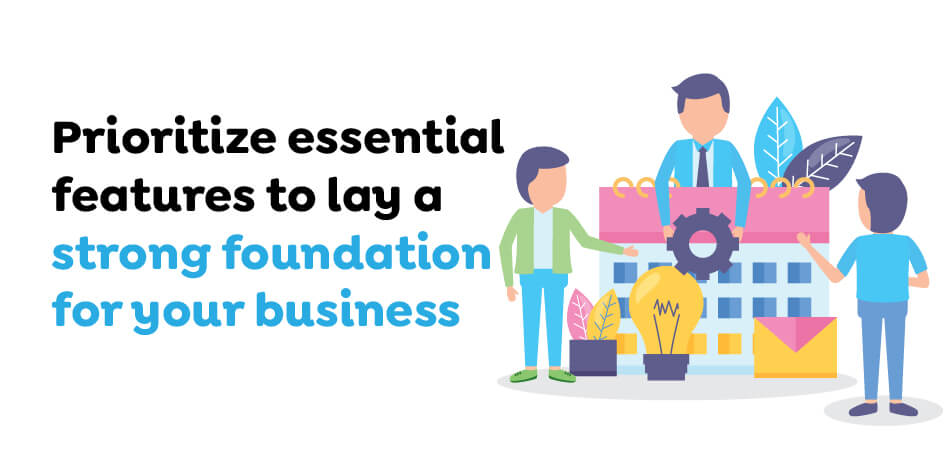
Empowering your business through a mobile accounting app is essential but what’s more essential is to ensure that development money remains in tight control. Following are some practical tips to save money without cutting corners on quality:
Paint the central features with an accounting app development company in UK that are rather very significant to your business. You can initiate the development with these core features and then review to include complex functionalities since their addition one by one will bring out the best.
Consider phased development. You do not need to work on the entire app but fire up a simple version that possesses core functionality. In this way, you can test it with users in live situations and gather experience and feedback based on which further development is carried out. Iterative methods may be less expensive than the development of all features at the very start since you spend resources only on the features that are useful to users.
Enterprises with easier accounting needs can jump directly to low-code/no-code development platforms. The platforms provide pre-built templates and drag-and-drop features that enable users to build basic accounting apps with minimal coding expertise. While this will not suffice for highly complex apps, the approach will aid in the cost-effective development of a basic accounting solution for your business.
Note that the most cost-effective development team does not have to be the cheapest. Hire a team that can demonstrate successful delivery of projects within the budget estimates.
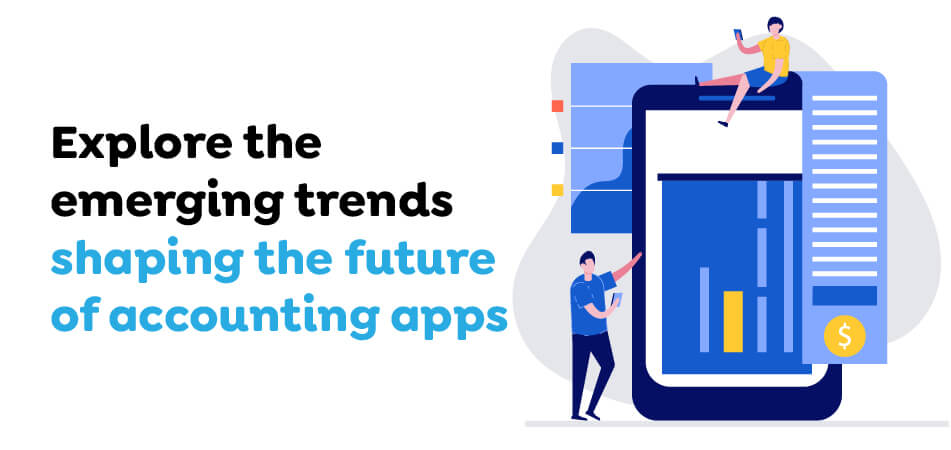
In the world of accounting app development, new trends constantly arise and define the landscape, sometimes even interfering in influencing development costs. Here’s a sneak peek at some emerging trends that need considering in your plans for an accounting app:
An accounting app might automate expenses, reconcile bank statements, or create financial forecasts based on historical trends. How? Through the power of Artificial intelligence. But off course, this will increase the up-front cost of development for an accounting software app development company. In the long run, however, its efficiency and precision pay off.
The future of accounting is in the cloud. If a mobile accounting app requires interoperability with leading cloud accounting packages. Thus, Xero or QuickBooks becomes very important. This provision will give real-time access to financial information from anywhere globally and data synchronisation between the app and its accounting products in real-time. Such robust cloud integrations might call for additional development efforts to help improve users’ experience and make your app competitive enough.
Also Read – Cloud Application Security: Best Practices To follow!
A transparent form of storing financial information is what blockchain technology is about. While integrating blockchain into an accounting app may not be relevant to every business, it is one of the trends to watch out for, especially for businesses dealing in extraordinarily sensitive and private financial information. The probable addition of blockchain to make development more complex and therefore more expensive will be balanced by the benefit of enhanced security in specific cases.
These are indeed promising trends for the future of accounting apps. However, on the downside, they usually translate to an increased complexity of development and therefore higher costs to provide such cutting-edge features within the apps. Be certain of which ones can work out for your business goals and budget. The most cost-effective approach may be a phased development where you start with the core functionality only, then possibly include AI or blockchain later depending on how your business grows and your budget allows.
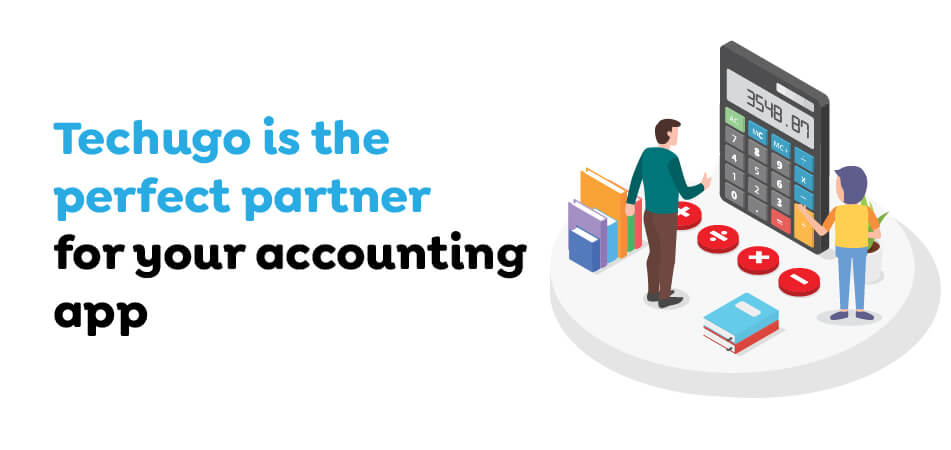
Businesses can immensely help themselves by developing a mobile accounting app. Partnering with a development associate can let you gain a strategic app to streamline your finances. Multiple factors include the load and the cost of the app. Therefore, carefully consider the values that are most central to your needs. Arrange features in order of priority, and then go for cost-saving solutions.
Working with an expert accounting app development company in UK like Techugo, you will feel confident about the development process so that your app can successfully offer a strong return on the investment made. Techugo can perfectly guide you through your project. Owing to their proven record of accomplishment across a variety of industries, they possess experience in Fintech app development, which declares them knowledgeable about the intricacies of such apps. Moreover, Techugo makes sure to provide clarity on all possible costs that will be incurred, which include ongoing maintenance and fixed fees paid to app stores.
From a simplistic expense-tracking app to a full-featured solution with AI integrations, Techugo’s experience and flexible approach can help you achieve your needs. Partnering with Techugo will allow you to develop a powerful accounting app that will put your business in the fast lane to financial success. What more to wait for?
Get in touch today for a free consultation and discuss how we can transform your financial management with the development of a powerful yet affordable mobile app solution.
Write Us
sales@techugo.comOr fill this form